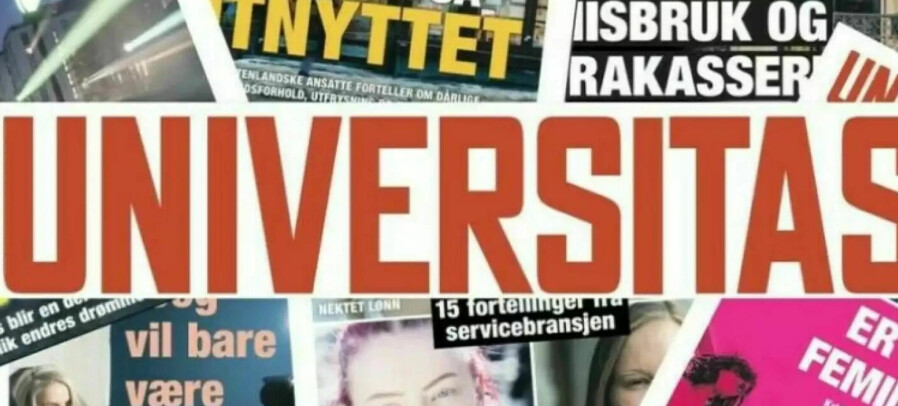Criticising own visibility
In an internal document, the Student Parliament admits that information regarding the election was insufficient. Responsible for the election Torkel Nybakk Kvaal says this might have resulted in the low turnout.
Following this year’s election, the Student Parliament is experiencing the beauty of hindsight. Their own evaluation reveals several shortcomings as to information procedures prior to the election. The Parliament’s information strategy is criticised on several counts in an internal document:
- No central election campaign crew was able to host events.
- Nobody was assigned to hand out flyers.
- Information between the Student Parliament and local election campaign crews was insufficient.
- Lack of information was the main reason why so few were present at the election debate on 30 March and the student seminar on 28 March.
– Lack of PR
One of the newcomers in the Student Parliament Election, Grøn Liste, thinks that the election itself was a success, but that information to students could have been better.
– Among others, we had two debates targeted against the entire University. The turnout was remarkably low, and that may have been caused by lack of PR, leader Marianne Trøyflat says.
She furthermore thinks that the Student Parliament failed to amply inform about the deadline for registering candidacy.
– It was in fact by coincidence that we were informed of how to register as a candidate before the deadline. Had we not read about it in Universitas, we would have been too late, she says.
Benjamin Jonsrud from Venstrealliansen is also critical to the information procedures.
– Neither the Faculty of Humanities, nor the Faculty of Social Sciences has shipped ballot boxes out to the more remote departments, Jonsrud says to Universitas.
Lack of information
Torkel Nybakk Kvaal was responsible for this year’s election. He accepts criticism as to the lack of information during the election campaign.
– Students got the general idea that there was an election, but were not informed why they should exercise their rights to vote and who they could or should vote for. This was unclear and should have been announced much sooner, he says.
Kvaal says that the Student Parliament had made an ambitious plan prior to the election which was not followed.
– Why is this?
– This is largely caused by scarce resources and the fact that reaching an agreement as to this plan with student politicians proved difficult.
– What effect may the lack of information have had for the outcome?
– Low turnout, which in turn leads to challenged legitimacy for the Parliament. Those who have been given the vote of confidence are to represent students, and it is a democratic problem when so few vote, Kvaal says, but also stresses that the self-criticism of the Parliament not necessarily means that things went wrong.
– The trend has been reversed
Leader of the Student Parliament Maria Veie Sandvik, on the other hand, does not feel that information has been insufficient.
– We offered both new web pages, election supplements, and we furthermore sent out an e-mail to all students where they received relevant information, Veie Sandvik says.
– We were also supposed to have a PR-committee that would have been in charge of putting up posters and handing out flyers. This might have attracted more students to the debates. That way, more students would have been aware of the various agendas of the political groups and the difference between them, she says.
Veie Sandvik believes it takes more than just information to get people to vote.
– My experience is that information won’t cut it. It is only when one is at the risk of being deprived of any advantages that one gets involved. The challenge therefore lies in stimulating involvement among students.
– To begin with, I was disappointed by the turnout. However, when you look at the faculties separately, I am pleased. We have recorded a significant progress and have reversed a bad trend. After all, there were 700 more voters during this election.






























